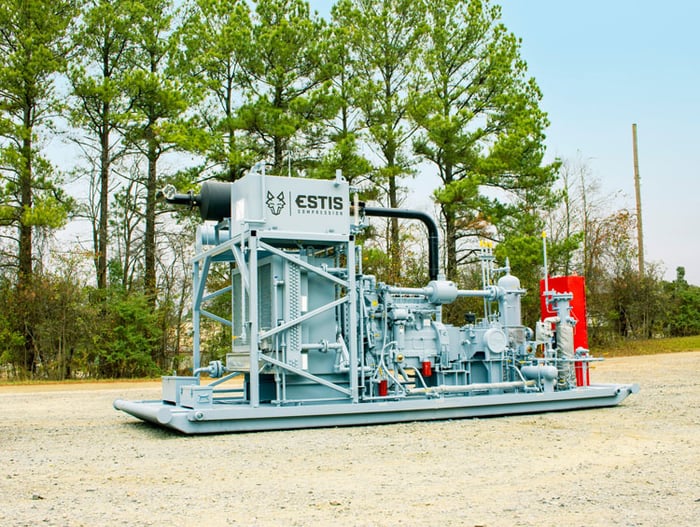(Hint: just about all of them)
High-Pressure Gas Lift (HPGL) is your ideal artificial lift solution for conditions where an ESP won’t perform.

You know high that GORs inhibit ESP performance, and GORs tend to increase over time. Even with improved rotary gas separators and different impeller designs, operators struggle to keep ESPs at designed capacity as the GOR increases over the well life.
Meanwhile, gas volumes don’t inhibit HPGL. With HPGL, your performance results remain relatively consistent from low to high GORs. And HPGLs produce similar volumes to “best-case” ESP conditions.
You also know that sand or other solids can build up around ESP components in the well. These solids can clog tight clearances, or simply erode the metal components, both leading to failure.
HPGL, by contrast, has a large flow area and no moving parts downhole. It’s able to handle solids in the production stream.
And finally, you know a corrosive and scaling environment can cause failure in well components. For most artificial lift methods, it’s difficult to get inhibitors to the bottom of the well. But HPGL can transport inhibitors deep into the wellbore via the lift gas.
But if you consider HPGL as a candidate only when ESPs won’t work, you’re missing opportunities to improve your production and profitability.
HPGL: More than just an ESP fallback
Let’s look at the “perfect” ESP conditions: low GLR and high fluid rates. Why wouldn’t you stick with an ESP?
Well, HPGL can achieve—if not exceed—the same deliverability of an ESP at the same low GLR. And it does so without the drawbacks of ESPs.
One of these drawbacks is the limited range of operation. ESPs do have a wider range of operation than they used to given the use of VFDs and modern day enhancements to design. However, due to the high 1st year decline rate of shale wells it is not uncommon for an ESP to be operating out of its designed parameters within the first 12 months of the well’s life. This can lead to shorter run life and costly workover operations. HPGL is a cradle to grave approach due to its wide operating range which can be controlled at surface.
So even under optimum ESP operating conditions, HPGL performs just as well without any of ESP's downsides.
Rethinking ESPs or other artificial lift as your Primary Option
HPGL is an optimum form of artificial lift for your assets in the non-conventional space.
- HPGL works on individual well development schemes and in developments where the wells share the feed compressor.
- HPGL is effective under uncertainties in early well-producing potentials and properties.
- HPGL operates in deviated wells, high sediment wells, and a wide range of GLRs.
- HPGL has almost no limitations in the unconventional space for lift. It can go as deep as you need to go for most onshore uses.
- HPGL sees less downtime because there’s no downhole equipment to break or fish out.
- HPGL can operate over the full life cycle of the well.
HPGL’s benefits and versatility make it a clear first choice for your artificial lift needs.
Ready to learn more?
Single-point HPGL is the simplest, most efficient and productive lift system with the lowest total cost of ownership and the least downtime.
With Estis Compression making wellhead compression affordable, customizable, and reusable, HPGL for onshore production is ready to take off.
If you’d like to take advantage of this emerging trend, check out our evaluator, to see how you can improve your productivity and reduce costs.


